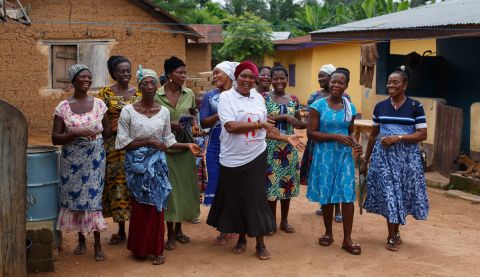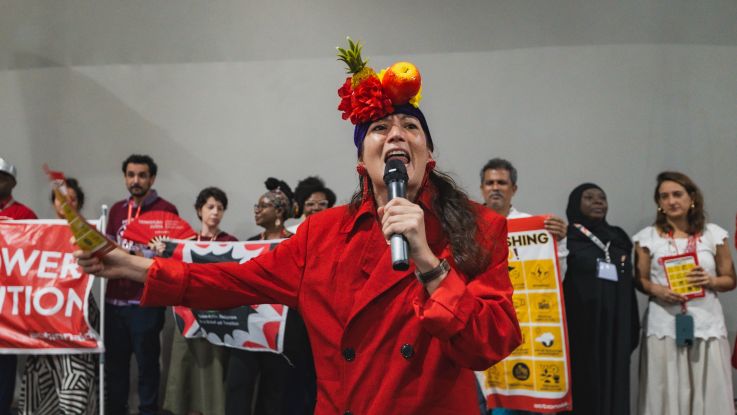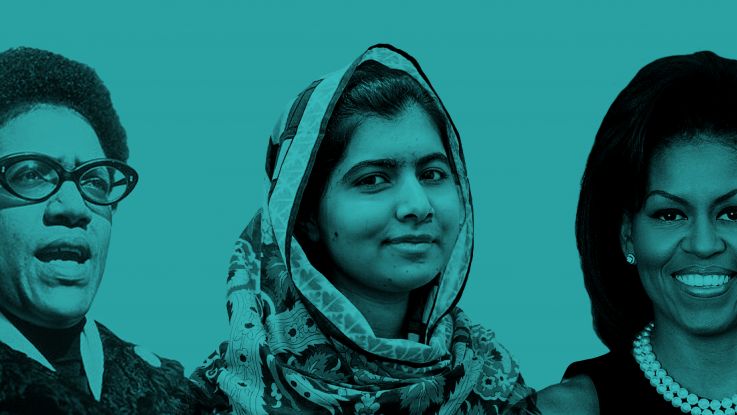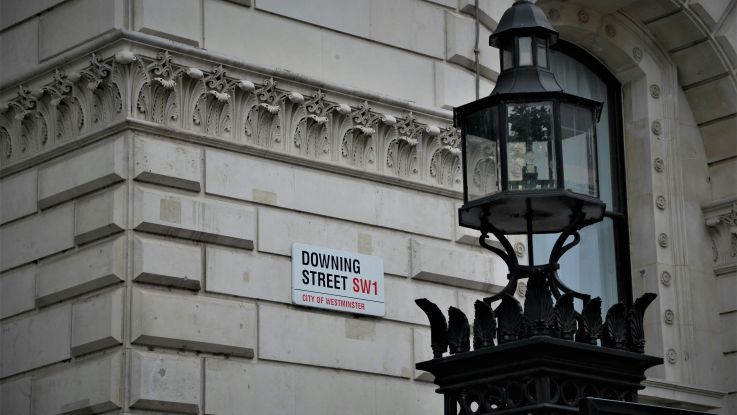Three things to know about the UK’s International Women and Girls Strategy
10 March 2023
The Government published its long-awaited International Women and Girls Strategy on International Women’s Day. The Government’s aim is to tackle gender inequality globally, but is it capable of doing that? Here we look at the top three take-aways about the Strategy and assess the Government's chance of success.

Women's rights organisations campaigning in Ghana. Photo: Misper Apawu/ActionAid
1. It's a welcome investment, but one that still falls short
The Government uses this Strategy1 to promise £238 million for work with women and girls, and it commits that by 2030 at least 80% of UK-funded programmes will have an objective to target gender equality.
This is very welcome news, particularly following the low expectations set by last year’s International Development Strategy. That document stated that women and girls were a priority, but it gave no indication of what funding would be provided or what prioritisation would mean in practice.
The problem now, however, is that the Government’s £238 million pledge alongside the Women and Girls Strategy is a drop in the ocean compared to the approximately £4 billion that the Government cut from its Overseas Development Assistance budget (commonly referred to as the aid budget).
This swingeing cut, which is being implemented in phases, disproportionately impacts women and girls – from vaccine programme cuts to massive reductions in projects that tackle violence against women and girls – and the Government was forewarned that this would be the consequence.
If the Government is serious about tackling gender inequality, then it must keep the promise made by former Prime Minister Liz Truss, to reinstate funding that was previously cut from gender equality programmes.
2. Funding for women and girls is to lead the way
The Strategy includes a ‘new emphasis’ on supporting grassroots Women’s Rights Organisations (WROs) with tens of millions of pounds from the allotted £238 million.
This is a crucial shift because trust in feminist leadership and movements is fundamental to tackling gender inequality. Women and girls are not the passive subjects of gender inequality, but the leading agents of change.
We hope that the Government, in the privileged position of distributing funds, has recognised them as such. By their very nature, WROs are rooted in their communities, trusted by their communities and best placed – in consultation with their communities – to identify issues and devise solutions.
ActionAid UK has been calling for increased funding to WROs for years2 through our advocacy and campaigning work with MPs, following the lead of international feminist organisations with decades of experience.
This new emphasis from the Government really is an important win for women and girls, and now we wait to see if WROs will be given the opportunity to exercise their autonomy and freedom to do what they do best: tackle gender inequality.
3. The foundations remain troubling
When the Department for International Development (DfID) was merged into the Foreign and Commonwealth Office (FCO) to form the Foreign Commonwealth and Development Office (FCDO), it also changed the aim of UK development work.
While DfID’s goal was dedicated ‘to promote sustainable development and eliminate world poverty’3, the FCDO has centred British economic interests in its work. This can blunt the effectiveness of any development efforts, including those in the Women and Girls Strategy to tackle gender inequality.
This blunting effect was evident in last year’s International Development Strategy, where the ability of policy to deliver trade and job benefits to the UK was emphasised, while the word ‘poverty’ featured just 9 times in 32 pages.4
With gender inequality being so thoroughly entrenched via the patriarchy and skewed economic and political systems, 'self-interest’ can only ever impede strategies to tackle it.
For the first time, the Government has also asked its global network of Commissions and Embassies to use their diplomatic influence in order to help tackle gender inequality. It will be interesting to see what they can achieve and to what extent the UK’s self-interest might impair that endeavour.
So, is the Women and Girls Strategy up to the job?
There is definitely good news in the Strategy as the Government finally appears to recognise women and girls themselves as the key-holders to transformative change, by ring-fencing funding for Women’s Rights Organisations.
However, tackling gender inequality is an uphill battle. That hill is made steeper by the Government’s own cuts to the ODA budget, support for the international trade and financial structures that embed inequality, and insistence on FCDO policy fulfilling the UK’s self-interest.
Given that implementation and funding are critical to the Government meeting its commitments in this Strategy, as well as the women and girls' rights that it has committed to previously, it is far from clear what impact this Strategy can have on tackling global gender inequality.
Added to this, the credibility of the UK as a self-proclaimed ‘world leader’ in this space – when it could break international law by withdrawing women and girls’ rights to claim asylum if they arrive by a small boat – is in serious doubt.
Join our work with women and girls to end gender inequality
We will continue to hold the Government to account – will you join us and share this blog with your networks?
Footnotes
- 1https://www.gov.uk/government/news/uk-launches-new-global-women-and-girls-strategy-on-international-womens-day
- 2https://www.actionaid.org.uk/sites/default/files/publications/fearless
- 3https://www.gov.uk/government/organisations/department-for-international-development/about#:~:text=improving%20the%20lives%20of%20girls,carbon%20growth%20in%20developing%20countries
- 4https://www.gov.uk/government/publications/uk-governments-strategy-for-international-development



